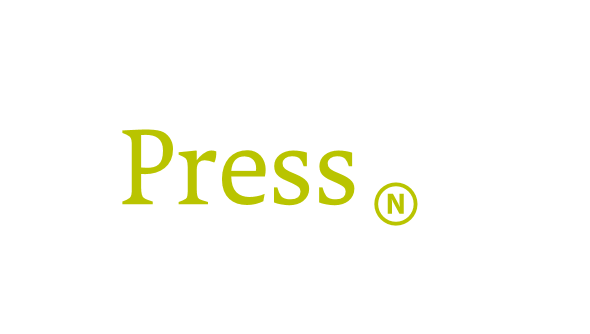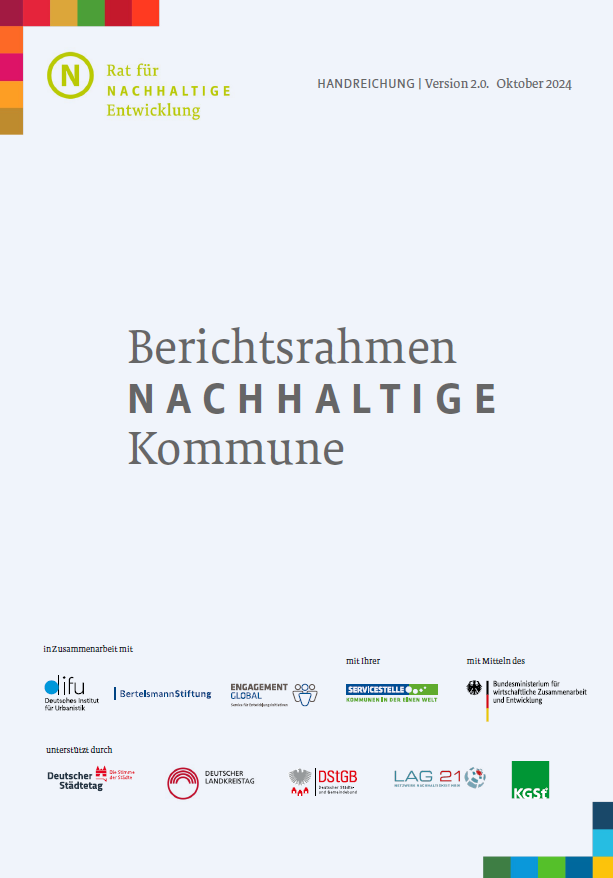German Council for Sustainable Development revamps key tool for local authorities with a broad consortium of partners

Berlin, 15.10.2024 – The German Council for Sustainable Development (RNE) unveils the new version of the Local Sustainability Reporting Framework (BNK), offering local authorities a sound basis for transparent and integrated sustainability reporting.
The BNK 2.0 was developed on the basis of experiences collected from a comprehensive pilot phase in over 30 municipalities between 2021 and 2024, as well as an accompanying stakeholder process. The update was assisted by expertise from the German Institute of Urban Affairs (Difu), the Bertelsmann Foundation and the Service Agency Communities in One World (SKEW) of Engagement Global, and is supported by the three municipal umbrella organisations, the state working group LAG 21 NRW and the local government association for public administrators (KGSt).
RNE Chair Reiner Hoffmann underscores the importance of the local level for achieving the Sustainable Development Goals: “Local authorities are the key to successful delivery of the 2030 Agenda and the German Sustainable Development Strategy. With the BNK, we are creating a tool that helps local authorities to make their challenges and their contributions to sustainable development both visible and assessable. The BNK is not just a reporting instrument, it’s a driver of future-proof development at the local level.”
The BNK offers local authorities a flexible structure that allows them to tailor their sustainability reporting to their own specific needs and challenges. At its core is a mandatory set of 62 qualitative aspects and 19 quantitative KPIs. These have been significantly streamlined since the pilot version from 2021 in order to simplify their application, not least for smaller municipalities or those less well-resourced.
The updated BNK is a reporting standard that better addresses the many and varied requirements and dynamic developments in the realm of sustainability. Its aim is to support local authorities, regardless of their size or financial resources, to render their progress in sustainable development measurable and integrate it into the strategic management of their activities.
Katja Dörner, RNE member, Mayor of the Federal City of Bonn and vice president of the Association of German Cities, emphasises the role the BNK plays in sustainability management: “The new BNK is a crucial milestone for local sustainability work. Thanks to the integrated reporting, we as local authorities can not only reflect our own contributions to sustainable development, but also improve the strategic management of our municipal corporations in terms of sustainability and capitalise on synergies. That’s an important step on the way to realising sustainability for the wider ‘municipal enterprise’ as a whole.”
Overview of the BNK
- Content-based format: The BNK covers all relevant aspects of a contemporary sustainability policy, from climate action to the circular economy all the way through to health and social participation. Local authorities can add their own content.
- Flexible structure: The reporting framework allows flexible arrangement of report content and can be adjusted to existing local sustainability strategies or to frameworks like the UN 2030 Agenda for Sustainable Development.
- Targeted reporting for the ‘municipal enterprise’: The framework creates an interface to the sustainability reporting of municipal corporations and promotes integrated sustainability management without redundancies.
- Dynamic learning curve: Local authorities that are not yet in a position to report on certain indicators or aspects have the option to explain this transparently with the comply-or-explain principle and then document progress in future reports.
- Promotion of inter-municipal exchange: By making it easier to compare reports, the BNK enables local authorities to share experiences and best practices, which in turn supports the ongoing improvement and development of their sustainability work.
- Online reporting: From mid-2025, the Bertelsmann Foundation will provide an online portal where local authorities can compile and publish sustainability profiles as per the BNK.
The BNK 2.0 is available to download here (available in German):
Contact for media inquiries:
Katja Tamchina
Rat für Nachhaltige Entwicklung
Geschäftsstelle c/o GIZ GmbH
Potsdamer Platz 10
10785 Berlin
Germany
Tel.: +49 30 338424-746
Email: presse@nachhaltigkeitsrat.de
Contacts for local authorities:
Anna Lotta Nagel
Rat für Nachhaltige Entwicklung
Geschäftsstelle c/o GIZ GmbH
Tel.: 030 / 338424-534
Email: anna.nagel@nachhaltigkeitsrat.de
Jan Korte
Rat für Nachhaltige Entwicklung
Geschäftsstelle c/o GIZ GmbH
Tel.: 030 / 338424-123
Email: jan.korte@nachhaltigkeitsrat.de
